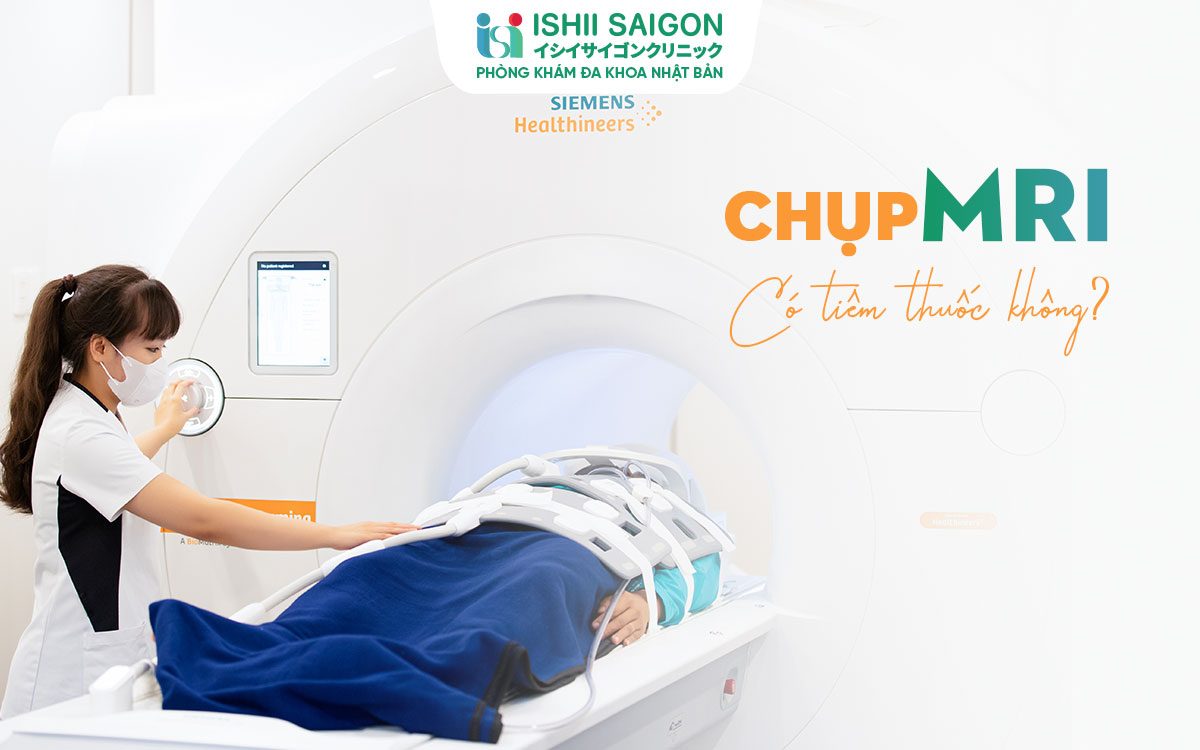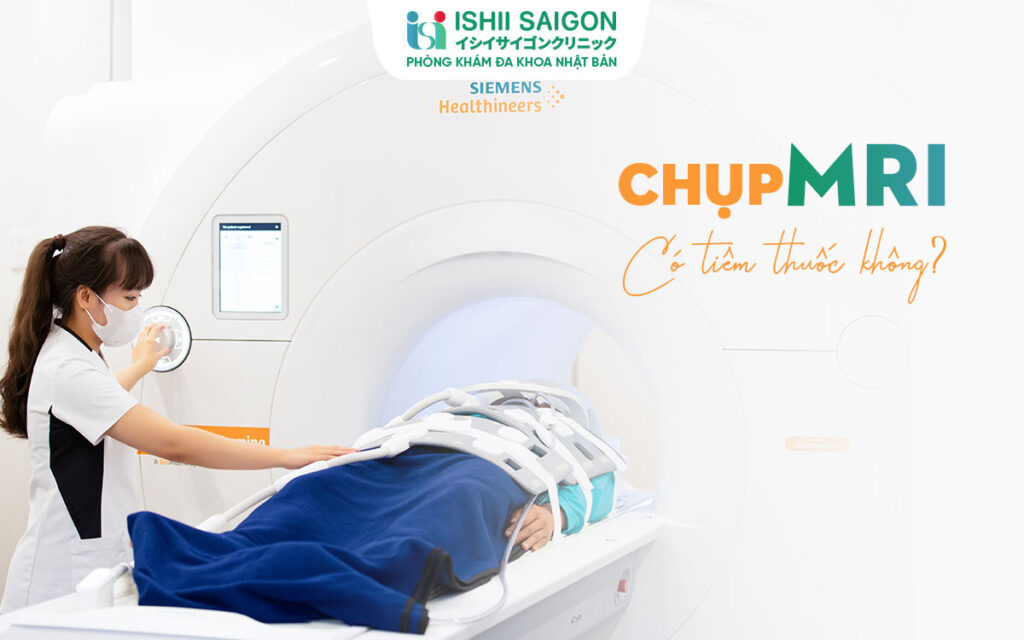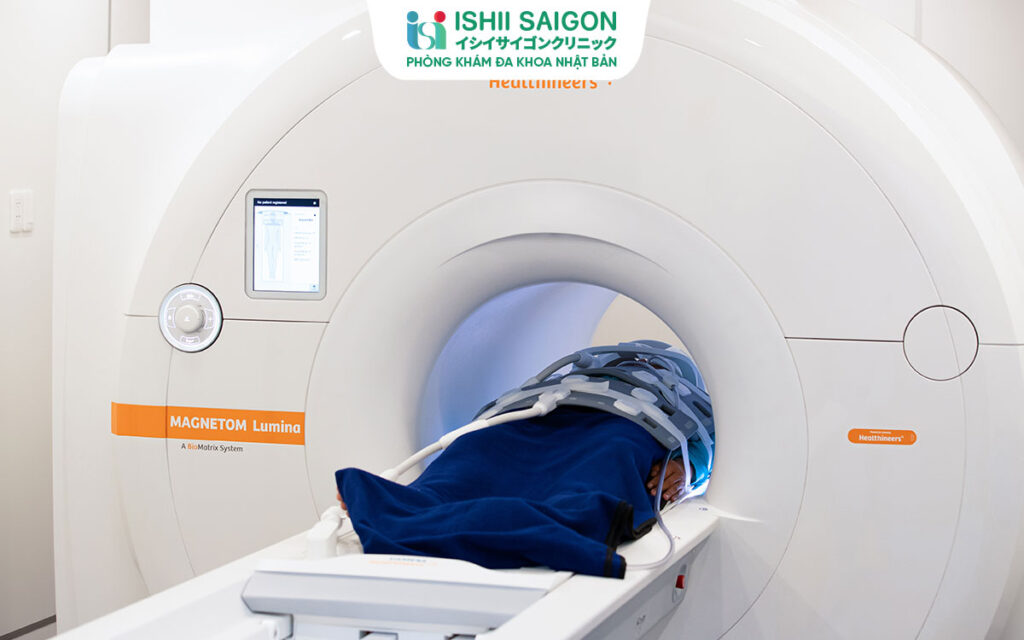
1. Introduction to MRI scans
Magnetic Resonance Imaging (MRI) is a non-invasive imaging technique that uses strong magnetic fields and radio waves to create detailed images of organs, tissues, and structures within the body. Unlike X-rays or CT scans, MRI does not use radiation, making it safer in many cases. It is an essential tool in diagnosing complex conditions such as cancer, brain injuries, or diseases related to the spine and joints.
MRI scan procedure
Preparation before the scan: The patient will change into specialized attire and be asked to remove any metal objects from their body.
Scanning process: The patient lies on the examination table and is moved into the MRI machine, where magnetic fields and radio waves are used to create images.
Scan duration: The scan takes between 30 minutes to 1 hour, depending on the area being examined and the techniques used.
Completion: After the scan, the patient can leave immediately unless there are special instructions from the doctor.
Effects of contrast agents in MRI scans
In some cases, to produce more detailed images, the doctor may require an injection of a contrast agent into the patient's body.
Commonly used contrast agents
The most commonly used contrast agents in MRI scans are those containing Gadolinium, a rare metal that enhances image contrast. Some commonly encountered names include Gadopentetate dimeglumine, Gadoteridol, and Gadodiamide.
How the contrast agent works
The contrast agent containing Gadolinium moves through the bloodstream and accumulates in areas of damaged or abnormal tissue, helping to produce clearer and more detailed images during the MRI scan. This allows doctors to easily detect issues such as tumors, infections, or blood vessel damage.

2. In which cases is a contrast agent required during the scan?
Conditions that need to be evaluated
The injection of a contrast agent is typically performed when detailed information is needed about:
Tumors: Determining the size, location, and characteristics of the tumor.
Vascular conditions: Evaluating issues with blood vessels such as aneurysms or vascular stenosis.
Brain and spinal cord injuries: Helping to detect abnormalities in the brain and spinal cord.
Patient characteristics
Doctors may also prescribe a contrast agent based on factors such as age, medical history, and the level of detail required in the images. Patients with chronic conditions or those who have had surgery may also need an MRI with a contrast agent.
3. Benefits and risks of injecting contrast agents
Benefits of injecting contrast agents
Clearer images: The contrast agent helps highlight small details that the MRI scan may not typically capture.
More accurate diagnosis: Helps detect and accurately assess the extent of damage in complex conditions.
Time-saving: Helps doctors quickly make a diagnosis without the need for additional methods.
Risks and potential side effects
Some risks and potential side effects may include:
Allergic reactions: Some people may experience allergic reactions to the contrast agent, although it is rare.
Acute kidney disease: For individuals with a history of kidney disease, Gadolinium may worsen kidney conditions.
Mild side effects: Nausea, headache, or dizziness.

4. Some important notes
Preparation Before the Scan
Before the MRI scan, the patient should:
Inform the doctor about your health condition, especially any allergies and kidney issues.
Do not bring metal objects such as bracelets, watches, or glasses.
It is recommended to fast for a few hours before the scan to ensure accurate results.
What to do after the scan.
After an MRI scan with contrast agent injection, patients are often advised to:
Drink plenty of water: Helps the body expel the contrast agent quickly.
Monitor your health: If you experience any unusual symptoms such as difficulty breathing, itching, or swelling, contact your doctor immediately.
5. Frequently Asked Questions
Does everyone need to have a contrast agent injected during an MRI scan?
Not everyone needs a contrast agent injected during an MRI scan. The use of a contrast agent depends on the doctor's recommendation, the type of condition being diagnosed, and the patient's specific health status. Typically, if there are no special requirements, the doctor will order an MRI scan without the need for a contrast agent.
How long does the effect of the contrast agent last?
After injection, the contrast agent begins to take effect within a few minutes and maintains its visibility for about 1 to 2 hours. It will be eliminated through the kidneys and excreted from the body via urine after approximately 24 hours.






